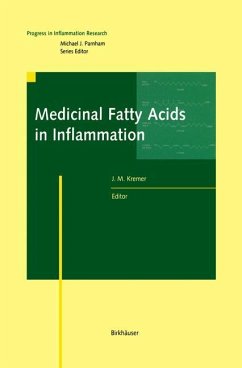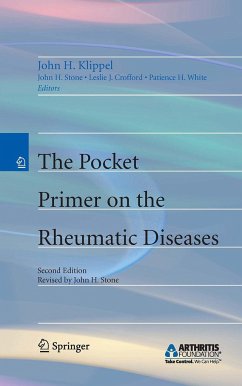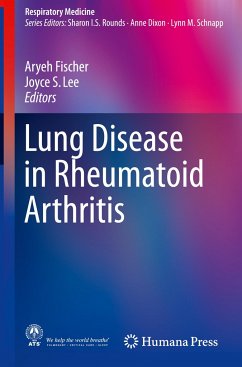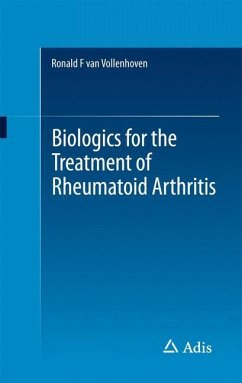
Antirheumatic Therapy: Actions and Outcomes

PAYBACK Punkte
0 °P sammeln!
This book gives a comprehensive overview of disease-modifying antirheumatic drugs (DMARDs). The introductory general chapters deal with the chemistry of DMARDs, their use in therapy, pharmacoeconomics, and a survey of opinion leaders in the field; the following specific chapters characterize each agent with regard to mechanism of action, therapy, pharmacology, efficacy, toxicity, and monitoring. For each agent some background is given, recent developments and influence of the treatment on patients` quality of life and long-term outcomes are presented.
Our goal for this book is to examine the contemporary therapy of rheumatoid arthritis (RA) from the increasingly important perspective of impact upon quality of life, costs and long-term health outcomes. For too long the focus has been on short term, symptomatic, and surrogate indicator outcomes. Yet RA is a life-long disor der with the majority of impact on an individual patient many years following onset. Further, even in the short-term, researchers and rheumatologists have tended to emphasize measurements of disease activity such as joint counts, ESR and physi cian's opinion as to the amount of disease activity present. It is only relatively recently that measures of structural damage, quality of life and impact on broad domains of health have been given increasing emphasis. Also, the significance of early treatment of RA in order to optimise long-term outcomes has a relatively short history [1]. We have been focussed on the disease processes as surrogates for long term outcomes. Until the short-term process measures are validated as surrogates of long-term effects we should also turn our attention to outcomes of disease and the impact of our management on those outcomes [2). Inour view, this book is especially timely. We are at the dawn of a revolution in the management of RA and other complex immunological inflammatory disorders because their molecular, genetic and environmental mechanisms are being unrav elled. Inthe process, we are revealing a substantial number of novel and significant targets for pharmacotherapy.














